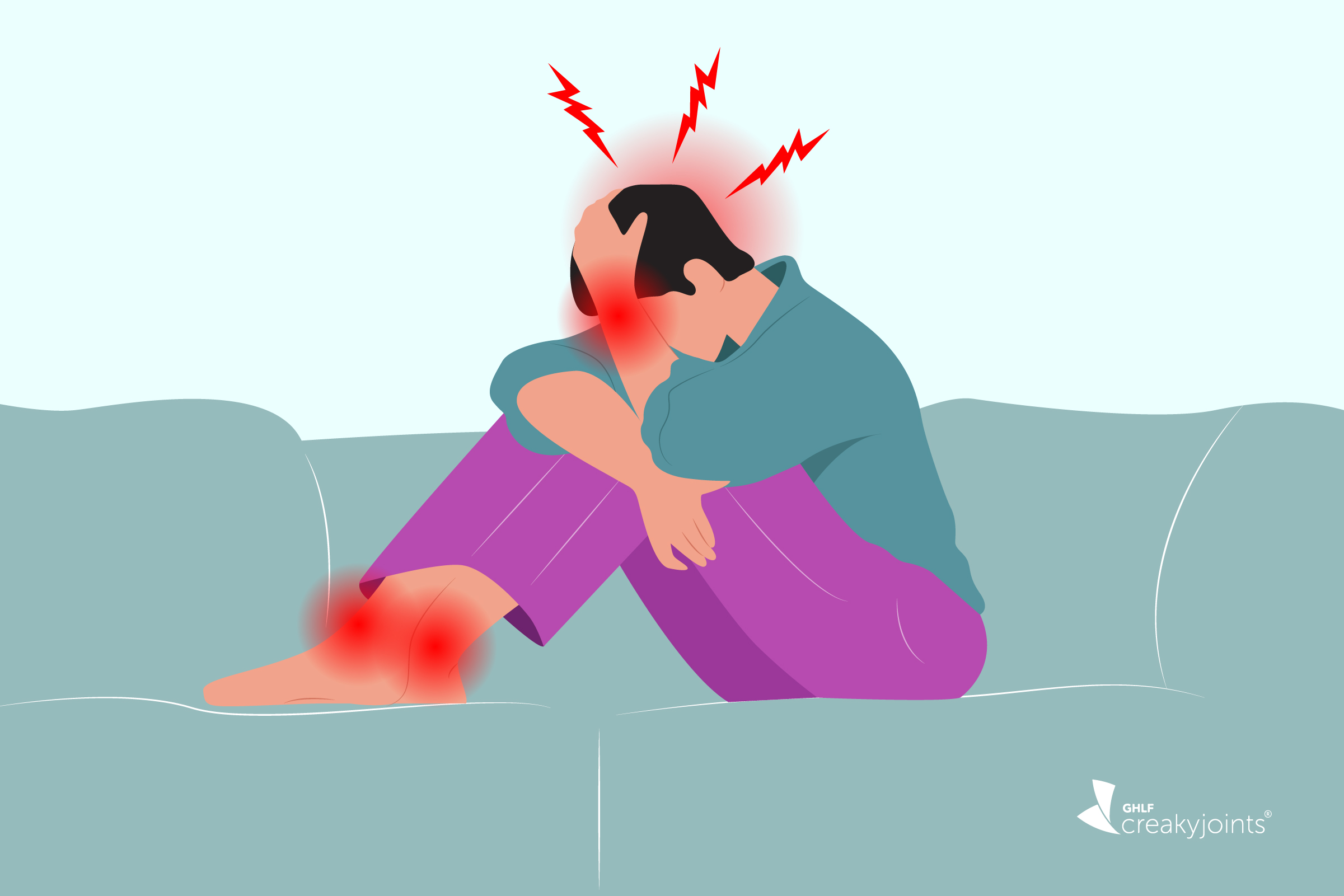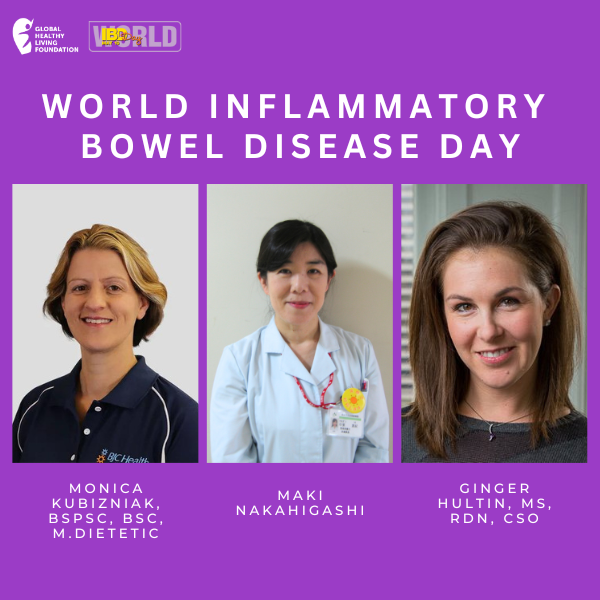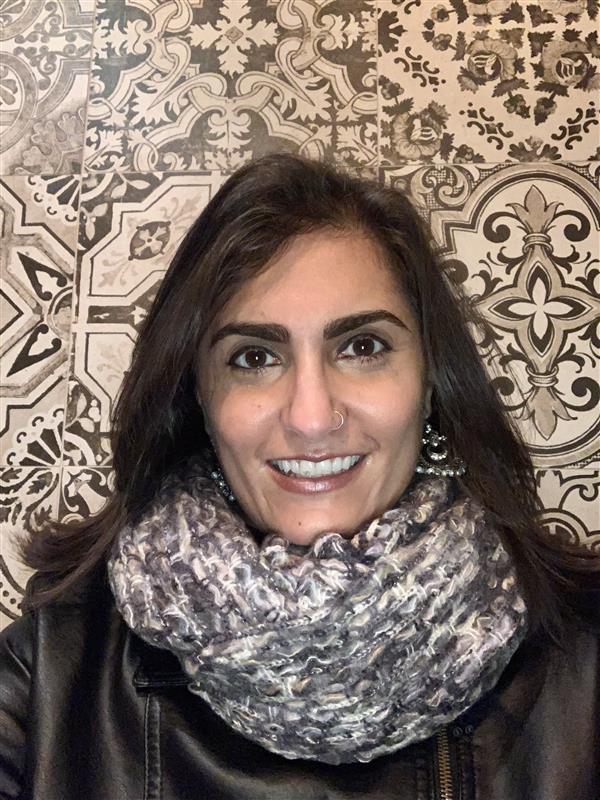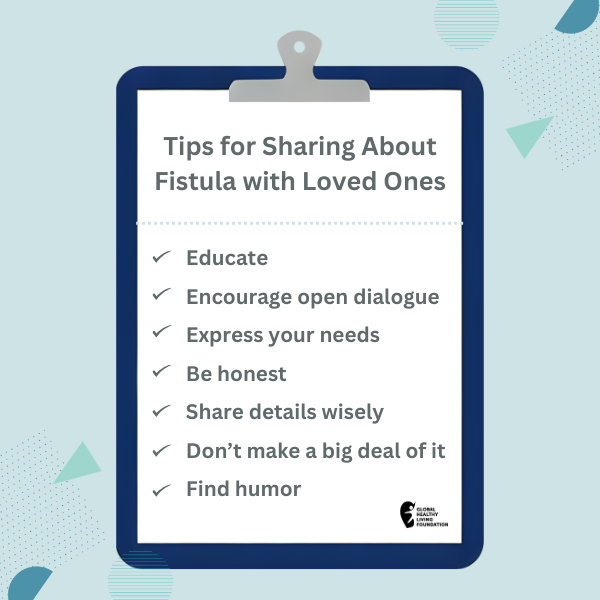In honor of World IBD Day, dietitians from three different continents share tips on managing diet and inflammatory bowel disease (IBD).
Ruchita’s Health Journey: Overcoming Fistula Challenges with Crohn’s Disease
Ruchita’s Health Journey: Overcoming Fistula Challenges with Crohn’s Disease
“I knew I had to treat my condition as a part of me and accept it if I wanted to live a life not defined by my disease. Crohn’s disease has put me through a lot of challenges and made me the strong and resilient person I am today because it is a part of me.”
February 1, 2024
Nina Wasserman

Check out Your Guide to Understanding Complex Perianal Fistula for more information on this topic.
For eight years, Ruchita Dunung endured a painful, life-altering condition called rectovaginal fistula, undergoing three surgeries with excruciating recoveries. But the fistula just kept coming back.
It wasn’t until 2018, when Ruchita was diagnosed with Crohn’s disease, that everything began to make sense. Her medical team realized that the fistula was a consequence of her Crohn’s disease, and with this understanding came the right treatment.
“I felt so much relief,” Ruchita says. Since then, her fistula symptoms have not returned. Richita’s story is a reminder of the importance of listening to yourself and being persistent in communicating with your health care professionals — even when it’s uncomfortable.
Dealing With Chronic Illness at a Young Age
At the age of 13, Ruchita found herself facing an unexpected and distressing situation. A painful boil appeared near her anal/vaginal area, initially mistaken for a skin condition. However, as it became infected and continuously discharged pus, it became evident that something else was wrong.
Ruchita recalls, “I was young and I did not understand. I had to rely on others to make medical decisions for me.” Her journey began with her first surgery, followed by a challenging recovery process.
“It was excruciating,” she recalls. “The area is extremely sensitive and to go through that type of surgery in such an intimate area at so young an age was very difficult.”
Adding to the stress of the situation was the timing of the surgery. In India, tenth grade is a pivotal year academically, as test scores during this time determine the type of studies you can pursue. “I missed a lot of school because of what I was going through,” she says, adding that she was worried that she wouldn’t get to choose the right career path. Amazingly, her scores were high enough for her to pursue her dream of going into dentistry.
Early on, Ruchita made a resolute decision: She was not going to let her fistula ruin her life and work to overcome any obstacles. “I wanted to graduate with my friends. I never wanted fistulas to take my young years from me,” she says. “It had already taken so much of my mental peace and physical strength, I did not want it to take away my spirit.”
The Biggest Challenges
Ruchita’s journey continued to be a challenging one. The symptoms of her fistula resurfaced three years after her initial surgery, precisely while she was in dental school.
“I felt at a loss and defeated when the fistulas resurfaced and remember going through questions in my mind like where did I go wrong or what did I do wrong to get it again? I had tried to hide it at first thinking it wasn’t a fistula and it would just resolve itself. I was in denial because I did not want it to be true,” she says, “I did not want to go through the excruciating experience again.”
After her second surgery, she could not sit because of the pain and had continuous fecal discharge. This led to a very isolating time. “I never wanted to leave the house because I wasn’t comfortable,” she says, “Plus, I had urgent bowel issues and was anxious about reaching the bathroom on time. It was very embarrassing because it is going to smell if you have fecal discharge. I did not have a choice…I could not be around people.”
Ruchita faced an additional challenge: it is not a visible condition, so people around you might not know that you are suffering, she says, adding that you also can’t just tell anyone. “The most difficult thing is that it is not easy to talk about. I had to keep my medical information close.”
But despite everything, Ruchita pushed hard to pursue her studies. She remembers taking a final exam right after her last surgery with painful stitches still in — and she passed.
The Right Diagnosis and the Right Treatment
After her third surgery, Ruchita’s doctor recommended a gastroenterologist and she was finally diagnosed with Crohn’s disease. That diagnosis was a game changer. She immediately began a biologic regimen.
For Ruchita, this diagnosis brought great relief and provided the answers she had longed for throughout those challenging years. Understanding that Crohn’s is an autoimmune disease helped her realize that her symptoms were not her fault and were not due to her diet.
Now, with her Crohn’s disease effectively managed through medications, she has not experienced a flare-up, and her fistula has healed. One of the reasons Ruchita has chosen the health care field as her profession is because of what she went through.
The Importance of a Support Team
Throughout her challenging journey, Ruchita was fortunate to have unwavering support from her family, providing her with emotional, practical, and financial assistance. In India, she resided with her parents, sister, aunt, and uncle, all living under one roof. Each member of her family played a crucial role in helping her navigate through her trials.
“My mom was the caregiver. She helped me with daily bathroom routines, cleaning, and dressing. She had to be by my side the whole time,” Ruchita says. Her aunt came with her to all her medical appointments and helped her family make important medical decisions.
Their collective support and love were instrumental in helping Ruchita face and overcome the challenges she encountered during her journey.
Advice for Those Who Are Newly Diagnosed
Ruchita offers valuable advice drawn from her own experiences. She emphasizes the importance of finding a reliable support network during challenging times. She shares, “Having that one person in my corner really made a difference.”
Another crucial lesson Ruchita learned is the patience required during the recovery process after fistula surgery. Healing the fistula tract and putting an end to the discharge take time. “A lot of recovery has to happen,” she says.
Ruchita found that her diet played a significant role in her recovery. She opted for foods that soothed her intestines and didn’t cause agitation. Additionally, frequent sitz baths were beneficial, helping to relax her muscles and maintain wound cleanliness.
On the emotional front, Ruchita underscores the importance of self-compassion. “You just have to keep going, she says. “It’s hard. I would not wish this condition on my worst enemies.”
The Need to Advocate for Yourself — and Get Results
Most of all, Ruchita has learned that you need to stay on top of your care and advocate for yourself. “Be very vigilant about informing your doctor,” she says. “You know your body the best. If you feel like your body is telling you something, listen to it, because it is probably asking for your attention.”
Ruchita learned this lesson the hard way, reflecting on whether her more vigilant follow-up with her doctor could have led to an earlier diagnosis, potentially sparing her from an eight-year ordeal without answers.
Her experience underscores the importance of being heard, even when your concerns may not initially find receptive ears. Even if it feels like you’re repeating yourself, it remains crucial to convey what’s happening within your body and whether a treatment plan is effective.
At one point, Ruchita was labeled uncooperative and stubborn, but her unwavering persistence ultimately ensured she received the right treatment, potentially preventing further delays.
Another instance of Ruchita advocating for herself pertains to her medication. Despite her fear of needles and injections, her doctor initially recommended medication in that form. However, Ruchita firmly advocated for herself, successfully pushing for an alternative in pill form. She firmly believes that solutions can always be found.
Equally vital is advocating for oneself emotionally. Ruchita emphasizes the mind-gut connection and advises not to ignore it, as emotional factors can exacerbate symptoms. She acknowledges her ongoing battle with anxiety related to urgent bowel issues, which can impact her Crohn’s disease.
Living with a fistula presents both emotional and physical challenges, but says it should not deter anyone from pursuing their dreams.
“It’s not anything to be ashamed of. It took me a lot of time to get over the embarrassment because it is such a taboo in our society. But I knew I had to treat my condition as a part of me and accept it if I wanted to live a life not defined by my disease. Crohn’s disease has put me through a lot of challenges and made me the strong and resilient person I am today because it is a part of me.”
Gut Culture Podcast
Check out Gut Culture, a podcast that gut checks assumptions about IBD (Inflammatory Bowel Disease) through real conversations with two health care leaders. Listen now.
This article was made possible with support from Takeda.
Source:
SUBSCRIBE TO GHLF
RELATED POST AND PAGES
_
Was this article helpful?
YesNo







